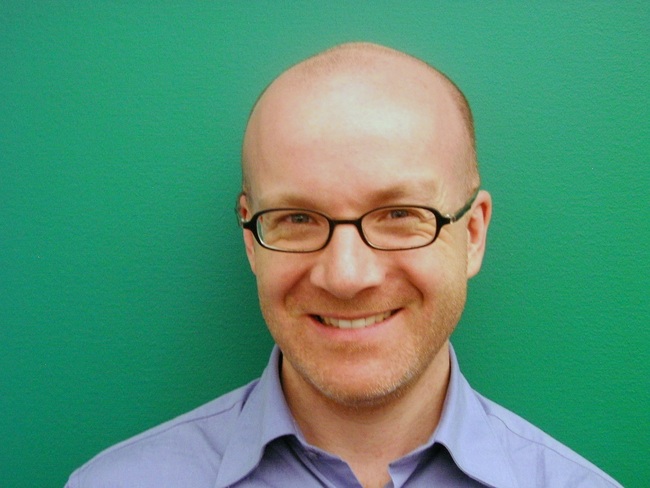
about me
[click here for about me // bullet points format]
Andrew McLaughlin is Chief Operating Officer at SandboxAQ. A 2022 spin-out from Google, SandboxAQ combines AI Large Quantitative Models (LQMs) and deep expertise in quantum physics and chemistry to address challenging problems in a range of areas, including cybersecurity (e.g., post-quantum cryptography and critical infrastructure protection), life sciences and healthcare (drug development and medical diagnostic devices), materials science & manufacturing (rapid prototyping of new materials and chemicals), and magnetic navigation (GPS-free geolocation using quantum sensors).
Andrew is a co-founder and partner at Higher Ground Labs, a startup accelerator and venture investor that backs and builds for-profit startups that strengthen democratic institutions and help pro-democracy candidates win election campaigns and policy fights. Since 2017, HGL has seed-invested in more than 65 amazing startups, led numerous Series A rounds and follow-on financings, and accelerated our portfolio’s growth, scaling, revenue, and product development. In 2023, HGL launched a pioneering AI Lab, focusing on marshaling AI to bolster democracy and the rule of law.
Andrew also serves as senior advisor to Radia, a clean energy company working to radically expand the scope and scale of onshore wind. Radia enables significantly larger onshore wind turbines by building and operating a fleet of the world’s largest cargo aircraft, customized to carry 100m+ turbine blades and components and able to land on dirt runways at wind farm sites just about anywhere, including difficult-to-access and low-wind areas where large blades are needed to generate cost-effective and reliable wind power. Radia’s mission is to achieve a major advance in decarbonization: more onshore wind in a wider array of locations, delivering more clean electrons and more green molecules at low cost.
From 2019-2023, Andrew McLaughlin served as founding President & COO of Assembly OSM, a fast-growing, venture-backed startup working to transform the way we construct urban buildings. Using advanced digital design and an innovative, manufacturing-based direct-to-fabrication-and-assembly delivery system, Assembly is building greener, higher-quality, more affordable high-rise housing in dramatically less time than conventional construction. Andrew continues as an advisor to Assembly OSM.
Andrew is a venture partner at betaworks, a technology and media startup studio and venture investor based in NYC.
board, public service, volunteer, and academic roles
Andrew is a member of the board of directors of Globant (NYSE: GLOB), a digitally native company that provides engineering, design, and innovation services to clients like Google, Electronic Arts, Santander, Novartis, Autodesk, and FIFA. With ~30,000 employees across 25 countries, organized across extraordinarily deep and capable Studio Networks (AI Reinvention, Creative, Digital, Enterprise), Globant helps organizations reinvent themselves to unleash potential.
Andrew is a member of the board of directors and the executive committee of the Starknet Foundation. Starknet is a permissionless, decentralized Layer 2 (L2) Validity Rollup intended to scale Ethereum while retaining Ethereum’s security and decentralization.
Andrew co-chairs the board of Access Now, a global not-for-profit devoted to defending and extending the digital rights of activists, journalists, and citizens at risk around the world. Andrew is a member of the board of Swing Left.
Andrew is a Future Tense Fellow at the New America Foundation; an advisor to Data & Society, a research institute focused on social, cultural, and ethical issues arising from data-centric technological development; a member of the Advisory Council of the Open Technology Fund.
Andrew is a member and former co-chair of the Digital Strategy Committee of the Brooklyn Public Library; a member of Brooklyn Bridge Park’s Community Advisory Council; and a member of New York Public Radio’s Digital Task Force.
Andrew is a member of the Council on Foreign Relations. He is a member of the Steering Committee for the Transatlantic Digital Debates, a fellowship program of GPPi and the New America Foundation.
prior professional roles
In 2017-18, Andrew was the founding executive director of the Tsai Center for Innovative Thinking at Yale, a new, university-wide initiative to support students across disciplines to tackle real-world problems in innovative ways. Tsai CITY is a transformative addition to the Yale campus, dedicated to advancing the university's goal of creating an interdisciplinary learning environment that cultivates innovators, leaders, pioneers, creators, and entrepreneurs in all fields and for all sectors of society. Through a wide range of programs, intensives, and initiatives, Tsai CITY coaches and supports students as they conceive, research, develop, prototype, test, build, iterate, and launch their visions -- whether a for-profit startup, a mission-driven nonprofit, a social justice movement, or an experimental theater company.
As a full partner at betaworks from 2012-2016, Andrew was an operator, a company and product builder, a business strategist, and an early-stage tech investor. He served as CEO of two betaworks companies, Digg and Instapaper, and in 2016 worked at Medium, leading a set of teams including corporate development, new business initiatives, editorial, outreach, international, and enterprise services. From 2012-2019, Andrew served on the board of Chartbeat, a real-time data analytics service founded at betaworks.
From 2011-2012, Andrew was EVP of Tumblr, responsible for the international, community, outreach, editorial, marketing, and support teams.
From 2009-2011, Andrew was a member of President Obama's senior White House staff, serving as Deputy Chief Technology Officer of the United States. In that role, Andrew was responsible for advising the President on Internet, technology, and innovation policy, including open government, cybersecurity, online privacy and free speech, spectrum policy, federal R&D priorities, entrepreneurship, and the creation of open technology standards and platforms for health care, energy efficiency, and education.
From 2003-2009, Andrew was Director of Global Public Policy at Google, leading the company's work on issues like freedom of expression and censorship, surveillance and law enforcement, privacy, copyrights and trademarks, regulation of Internet and telecommunications networks, wireless radio spectrum, national security, trade policy, patent reform, and online child protection. Google’s first public policy hire, Andrew established, built and managed a 50-person worldwide team based in Brussels, London, Paris, Madrid, Milan, Berlin, Amsterdam, Stockholm, Dublin, Brasilia, Buenos Aires, Tokyo, Seoul, Beijing, Sydney, Ottawa, Washington, and San Francisco. Beyond policy, Andrew was a co-lead on Google's Africa strategy and operations.
From 1999-2003, Andrew helped launch, establish, and manage ICANN, the Internet's technical coordinating organization, serving as Vice President, Chief Policy Officer, and Chief Financial Officer.
After clerking on the U.S. Court of Appeals for the Eighth Circuit, Andrew started his career as a lawyer at Jenner & Block in Washington, D.C., where he focused on appellate and constitutional litigation. He was a member of the legal team that challenged the U.S. government's first Internet censorship law, resulting in the Supreme Court's landmark 1997 Internet free speech ruling in Reno vs. ACLU. From 1997-98, Andrew served as legal counsel in the U.S. House of Representatives.
prior board, public service, and volunteer roles
From 2018-2022, Andrew was on the board of the Electric Coin Company, which builds and supports technology for Zcash, a decentralized, privacy-protective digital currency built on zk-SNARKs, a powerful form of zero-knowledge cryptography.
In 2008-2009, he served on the Obama/Biden presidential transition team, as a member of the Technology, Innovation and Government Reform cluster. In 2015-16, Andrew was a member of the human rights and tech & innovation advisory committees of Hillary Clinton's presidential campaign.
In 2020-2021, Andrew was a volunteer on the Biden-Harris presidential transition team, focusing on appointments in the areas of government delivery and innovation, cybersecurity, and technology policy. In 2021, Adams was a member of NYC Mayor-Elect Eric Adams’s transition team, focusing on technology, government efficiency, and city management systems and operations.
Andrew served on the boards of Code for America (2011-13), the Sunlight Foundation, (2011-2016), Public Knowledge (2012-2021). From 2005-2009, Andrew served on the board of Bridges.org, a technology policy not-for-profit based in Cape Town. In 2011-13, Andrew was a member of the Commission on Innovation of the U.S. Broadcasting Board of Governors.
Andrew has served as a member of the Partnership for New York City’s Innovation Council.
prior academic roles
In 2011-12, Andrew was a Lecturer in Law at Stanford Law School, teaching a course on "Freedom of Speech in a Digitally Interconnected World", a comparative international examination of constitutional clauses, legislation, and case law across 12 countries.
In 2011-12, Andrew was also a non-resident fellow at Stanford Law's Center for Internet & Society and at Princeton University's Center for Information Technology Policy. In 2014-15, he was a senior fellow in cybersecurity and Internet governance at Columbia University's School of International and Public Affairs.
From 1998-2005, Andrew was a Senior Fellow at Harvard Law School's Berkman Center for Internet and Society. In 2002-2003, Andrew taught a course on digital democracy at Harvard Law School while working on Internet and telecom law reform projects in a number of developing countries, including Ghana, Mongolia, Kenya, Afghanistan, and South Africa.
Andrew was a co-founder of CIPESA, a technology policy think-tank and advocacy center based at Makerere University in Uganda.
recognitions
In 2000, Time Magazine named Andrew one of its Digital Dozen for the new century. In 2001, he was named a Global Leader for Tomorrow by the World Economic Forum. He is a fellow of the Young Leaders Forum of the National Committee on US-China Relations.
education
Andrew holds a B.A. in history from Yale University, and a J.D. from Harvard Law School.
origins
Growing up, Andrew attended Highland Elementary School in Sylvania, Ohio; Widsten Elementary School in Wayzata, Minnesota; Longfellow Elementary School and Ben Franklin Junior High School in Fargo, North Dakota; the American Community School in Cobham, Surrey, UK; and Neil A. Armstrong Senior High School in Plymouth, Minnesota, from which he graduated in 1987. Over summers, he attended the Trollwood Performing Arts School in Fargo, the International Music Camp in Dunseith, North Dakota, and the Minnesota Institute for Talented Youth in St. Paul, at which point he had to start working summer jobs at places like the Sheraton Park Place Hotel, Dayton's Department Store, and the kitchen of the celebrated Red Lobster of Golden Valley.
Current + evergreen obsessions:
Artificial intelligence and machine learning, quantum science, startups, the Internet, tech, product design, business strategy, and global scaling.
Cities, architecture, construction, urbanism, transit, civic technology, economic opportunity, and sustainability.
Public policy, constitutional law, free speech, privacy, rule of law, and democratic vitality.
Intelligence, cybersecurity, foreign policy.
Government performance management, service delivery, and operations.
Politics, political theory and philosophy, American and world history.
Books, bikes, beagles.

